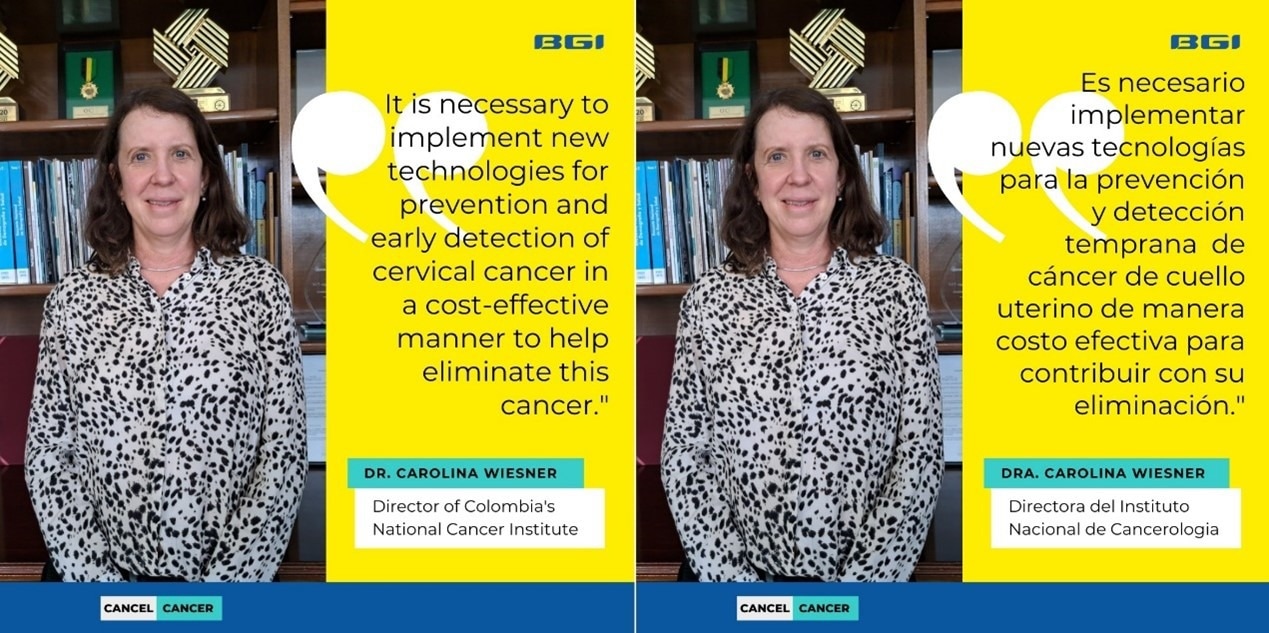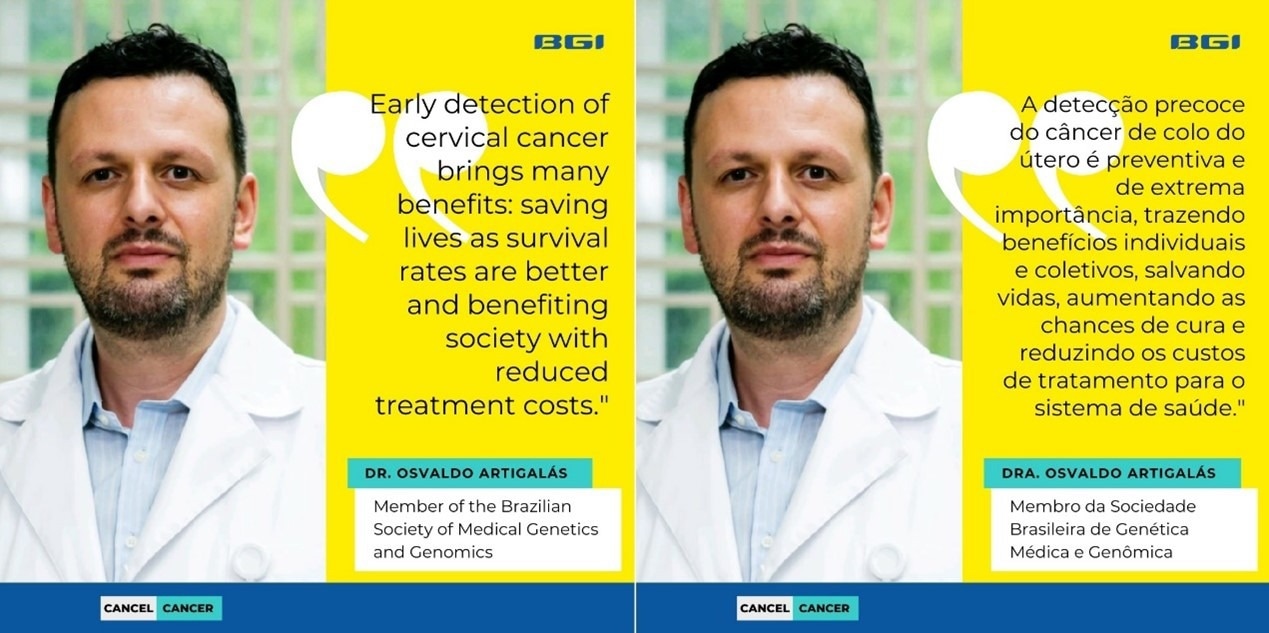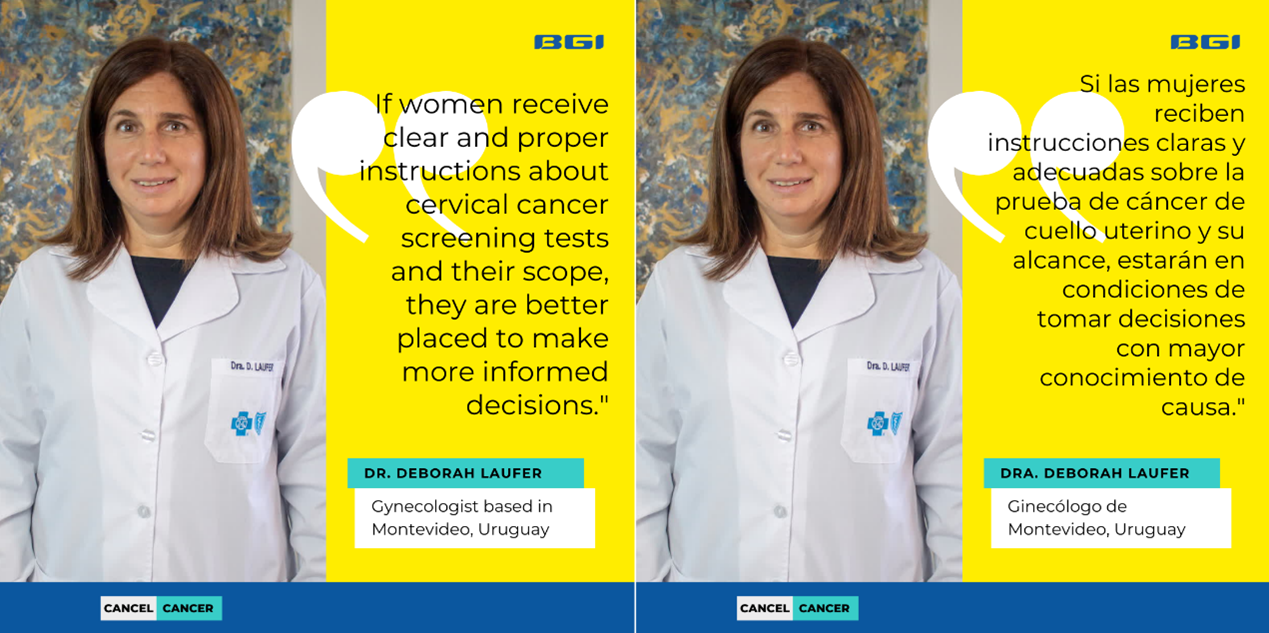Sponsored Content by BGI GenomicsReviewed by Olivia FrostSep 4 2023
Although highly preventable, cervical cancer still claims the lives of roughly 35,700 women a year in the Americas, with a staggering 80 percent of these cases occurring in Latin America and the Caribbean (LAC).
The newly unveiled BGI Genomics 2023 Global State of Cervical Cancer Awareness Report sheds light on potential gaps in awareness that might be contributing to the uneven distribution of cervical cancer cases within these regions.
To provide a deeper understanding of the measures required to enhance cervical cancer awareness in Latin America, BGI Genomics spoke with key experts, including Dr. Carolina Wiesner, Director of Colombia’s National Cancer Institute; Dr. Osvaldo Artigalas, a member of the Brazilian Society of Medical Genetics and Genomics; and Dr. Deborah Laufer, a Uruguayan gynecologist specializing in gynecological and pediatric endocrinology.
Cost-effective intervention to prevent cervical cancer
The Global State of Cervical Cancer Awareness Report (or Awareness Report) reveals that 43.5 percent of women between the ages of 21 and 25, which is the highest percentage within the surveyed age groups, express hesitancy towards undergoing a pap smear performed by a male doctor.
Furthermore, a study conducted by the Harvard School of Public Health emphasizes that in developing countries, the strategies that yield the highest cost-effectiveness involve minimizing the number of visits while concurrently decreasing the lifetime cancer risk by an estimated 25 to 36 percent.
It is necessary to implement new technologies for prevention and early detection of cervical cancer in a cost-effective manner to help eliminate this cancer.
Dr. Carolina Wiesner, Director, Colombia’s National Cancer Institute

Image Credit: BGI Genomics
HPV DNA self-sampling tests have become more widely available in recent years, with prices also significantly reduced, enabling twelve LAC countries/territories to pilot the introduction of these technologies.
The benefits of early detection
The Awareness Report reveals that 67.1 percent (Brazil) and 68.6 percent (Uruguay) of vaccinated women had a screening test, lower than the global average of 82.1 percent.
Further action is needed in these two countries as the existing vaccines do not protect against all high-risk HPV types and will have a limited impact on disease in unvaccinated women and those vaccinated at older ages.
Early detection of cervical cancer brings many benefits: saving lives as survival rates are better and benefiting society with reduced treatment costs.
Dr. Osvaldo Artigalas, Member, Brazilian Society of Medical Genetics and Genomics

Image Credit: BGI Genomics
In Uruguay, a significant 85.7% of respondents express a preference for the HPV DNA test over a pap smear, primarily due to their awareness of its superior accuracy.
Dr. Deborah Laufer responded to this finding, highlighting, “This response shows that if women receive clear and proper information about each of the tests and their scope, they are better placed to make more informed decisions.”

Image Credit: BGI Genomics
About BGI Genomics and SENTIS HPV tests
Headquartered in Shenzhen, China, BGI Genomics is the global leader in providing integrated solutions for precision medicine. In July 2017, as a subsidiary of BGI Group, BGI Genomics (300676. SZ) was officially listed on the Shenzhen Stock Exchange.
The CE-certified SENTIS™ HPV test combines self-sampling technology and genotyping assay to detect 14 of the most important, “high-risk” types of HPV, which includes HPV -16, 18, 31, 33, 35, 39, 45, 51, 52, 56, 58, 59, 66, 68 and 2 “low-risk” types of the virus, HPV -6, 11.
HPV genotyping detection relies on Next Generation Sequencing (NGS) technology, utilizing substantial sample volumes for each run. This approach significantly reduces the per-individual testing costs. Notably, in 2021, the WHO endorsed DNA testing as the primary screening method for cervical cancer prevention.
Methodology
The 2023 Global State of Cervical Cancer Awareness Report is based on an online survey of 1,878 female respondents from the Chinese mainland (310), Thailand (319), Saudi Arabia (312), Serbia (307), Brazil (315), and Uruguay (315).
These respondents were based in their respective regions or country at the time of this survey in July 2023. Surveys were carried out in local languages. Respondents were between the ages of 21 and 45 years old. Momentive Global was commissioned to carry out this survey.
About BGI Genomics
BGI Genomics is the world's leading integrated solutions provider of precision medicine, now serving customers in more than 100 countries.
They provide academic institutions, pharmaceutical companies, healthcare providers, and other organizations with integrated genomic sequencing, proteomic services, clinical testing, and solutions across a broad range of applications.
They have more than 20 years of genomics experience helping customers and partners achieve their goals by delivering rapid, high-quality results using a broad array of cost-effective, cutting-edge technologies, including their own innovative DNBSEQ™ sequencing technology.
Sponsored Content Policy: News-Medical.net publishes articles and related content that may be derived from sources where we have existing commercial relationships, provided such content adds value to the core editorial ethos of News-Medical.Net which is to educate and inform site visitors interested in medical research, science, medical devices and treatments.